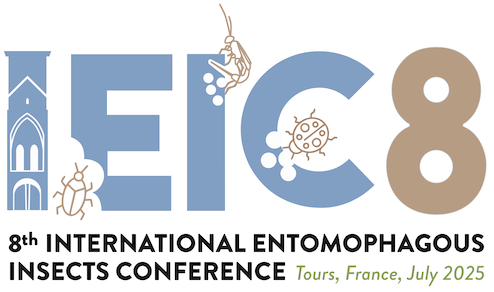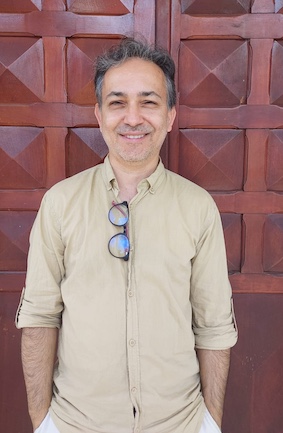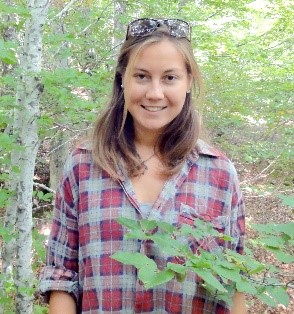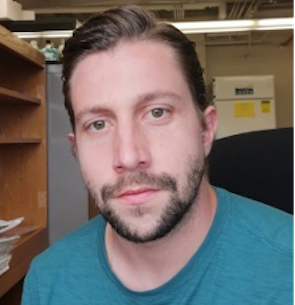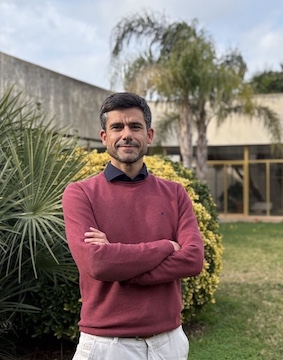|
|
|
Invited speakersLessando Gontijo - "Biological control in large-scale open-field systems"
Lessando Gontijo is an applied insect ecologist broadly interested in conservation and augmentative biological control. The overarching interests of his research revolve around investigating the mechanisms that drive biological control in the field, spanning from organismal traits to landscape-scale dynamics. He holds a B.Sc. in Agronomy from Universidade Federal de Viçosa (UFV), and earned his M.Sc. and Ph.D. degrees in Entomology from the Kansas State University and Washington State University (USA), respectively. He served as an Assistant/Associate Professor of Entomology at UFV for nearly nine years before recently joining the Department of Entomology and Acarology at the University of São Paulo. In addition to his research and teaching, he has served as an associate editor for several scientific journals, including Biological Control, Journal of Applied Ecology, and Neotropical Entomology. Mélanie Thierry - "Effect of global warming on Drosophila-parasitoid communities"
Mélanie Thierry is an ecologist interested in understanding the mechanisms behind the structure and dynamics of communities in the context of environmental changes. Currently, she is a post-doc researcher at the Center for Research on Biodiversity and Environment (CNRS) in Toulouse. She did her PhD in the University of South Bohemia in Czech Republic where she investigated the effects of the biotic context and global warming on host-parasitoid communities. She used an empirical approach with laboratory experiments on wild-caught tropical Drosophila-parasitoid communities. Her research has since extended toward other biological models. She investigated the effects of multiple environmental changes on organisms’ dispersal decisions using an experimental approach in microcosms with ciliates during a previous post-doc at CNRS SETE. She currently works on plant biodiversity under very high voltage power lines while still been involved in research projects using parasitoids.
Ange Lorenzi - "Characterization of Domesticated Endogenous Viruses gene function in parasitoid wasps"
Ange Lorenzi completed his PhD at the University of Montpellier (France) under Anne-Nathalie Volkoff supervision, studying how unique endogenous viruses are produced in ichneumonid parasitoid wasps. He then joined the Strand Lab at the University of Georgia (USA) to broaden his research on other cases of viral domestication across different wasp-virus associations. Now, back in his former PhD lab, he is exploring deeper into the genetic and molecular interactions that regulate viral genome replication and virus production in parasitoid wasps.
Alejandro Tena Barreda - "Honeydew as food source for parasitoids in agroecosystems"
Alejandro Tena completed his PhD thesis at the Polytechnic University of Valencia (UPV), where he studied how to improve the biological control of citrus and olive pests. During his PhD, he carried out several stays abroad, including at the University of California, Riverside, where he delved into the use of parasitoids in biological control. He later moved to the Institute of Agricultural Research in Valencia (IVIA). Since his arrival at IVIA, he has collaborated in the development of several biological control programs to manage invasive pests, in the study of the behavioural ecology of parasitoid and their interactions with ants. He has recently obtained different national and international projects to improve the management of invasive and emerging pests that are currently causing serious damage to European agriculture. He has also several projects to determine alternative food sources for biological control agents. Alejandro Tena has also served as Associate Professor at UPV, is vice-president of the Spanish Society of Applied Entomology (SEEA), Associate Editor of different scientific journals and has been the Treasurer of the “International Organization for Biological Control” (IOBC) for four years. In addition, he has worked for the “European and Mediterranean Plant Protection Organization” (EPPO) and the “European Food Safety Authority” (EFSA) as an advisor for different agricultural pests.
|
